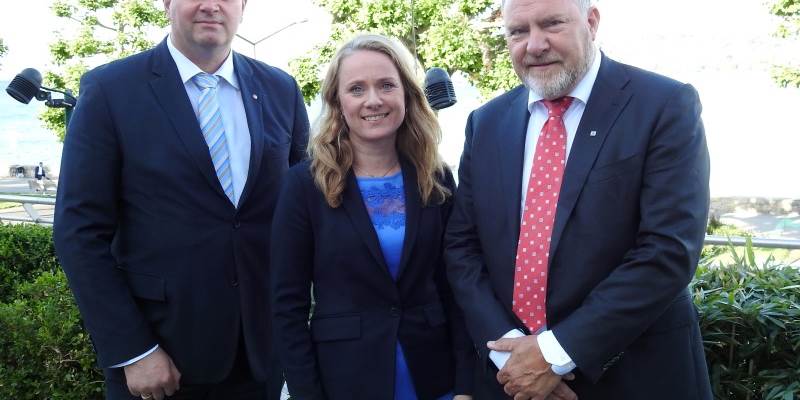The event was arranged in the margins of the ILO’s International Labour Conference (ILC). Speakers were Mr. Guy Ryder, ILO’s Director General, Ms. Anniken Hauglie, Minister of Labour and Social Affairs, Mr. Svein Oppegaard, Executive Director of NHO, and Mr. Hans-Christian Gabrielsen, President of LO. They presented the Norwegian experience in using social dialogue and tripartism to achieve better social and economic outcomes. The session attracted participants from several regions, and not a single seat was empty.
The recurrent discussion at this year's ILC focuses on the global challenges and opportunities for the full realization of the ILO's fundamental principles and rights at work. Social dialogue is a key vehicle for the achievement of these rights, but as the conference report on this subject recognizes, recent years have seen mounting pressures on the processes and institutions that support social dialogue and tripartism in all corners of the world.
The panellists shared the view thattripartite social dialogue has proved its worth in solving problems and providing creative answers to tough questions facing the country. Building on a tripartite foundation allows for fair solutions and enhanced democratic legitimacy.
The Minister explained how governments play a key role in the promotion of tripartism. Governments must initiate social dialogue at the national level. A high level of coordination in wage bargaining makes it possible for Norway to maintain relatively small wage differences, while still having a competitive industry. The involvement of the social partners in discussions on all the important aspects of work, not only issues related to wages, is necessary. In Norway, there are a range of different meetings and arenas for social dialogue. Organisation of workers and employers benefits the society, and well-organized social partners has made reforms in society possible.
A high level of trust is the key ingredient in the Norwegian social dialogue, Mr. Oppegaard emphasized. From the national level to the company level, there is a close cooperation between the employers, workers and government, which is characterized by mutual trust. This lays the foundation for productivity, innovation and growth, as well as high levels of equality. Still, well-organized dialogue does not mean that the labour market in Norway is free from challenges. To find solutions to these, the social partners initiated the Sustainability Pact last year, in which they agree to put their differences aside for the greater good.
Mr. Gabrielsen informed the audience that social dialogue has existed in Norway for more than a century, and that the institutionalized social cooperation extends further than wage formation. Recent times has brought new challenges to be addressed, driven by forces such as digitalization. The trust in the system of dialogue and the cooperation among social partners and government makes Norway well equipped to meet these challenges and find sustainable solutions.
While the tradition of social dialogue is a success in Norway, it is a challenge in many countries. The Norwegian model has many features that have proven to be sustainable and beneficial to all parties. DG Ryder underscored that there is no “one size fits all” solution for social dialogue, but that learning from what works for others can enable states to develop their own successful models of dialogue. The trust found in the Norwegian system is of paramount importance for its success.
The event showed that politicians and the social partners share a commitment to compromise and seek consensus to solve problems and upcoming challenges. It may take time to reach agreements, but it builds trust and legitimacy in the society. The tradition of compromising and working together to face arising challenges makes for sustainable solutions, which if perfect for nobody, are acceptable to all.
Their speeches can be found here (Hauglie), here (Gabrielsen) and here (Oppegaard).
